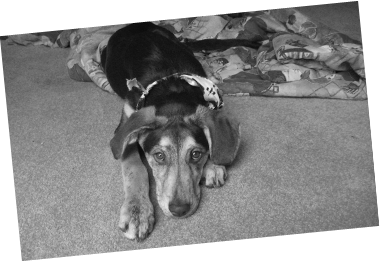Feather picking in pet birds from Cockatiels, to larger birds such as African Grey Parrots and Cockatoos, is an unfortunately common problem that we see here in the clinic. Today's blog will look at possible causes of feather picking including medical conditions and physcological factors.
 |
| Photo Courtesy of BirdChannel.com |
Whenever we see a patient that may have a behavioural or physcological problem it is important that we first rule out diseases or medical conditions that could be causing the symptoms. A lack of proper nutrition, especially low vitamin A levels can cause several health issues including feather picking. It is very important for birds to be on a well balanced diet. Seed based diets are not adequate for parrorts as they are very high in fat and calories but are low in protein and vitamin levels. We recommend weaning birds who are on an all seed diet on to a pelleted diet such as Harrison's. This can be very difficult for birds who are used to eating only seeds and sometimes we need to use table foods such as corn on the cob (cut into small wheels), carrots, whole green beans or whole peas in the pod to supplement the diet if the bird will not accept a pellets diet. Be imaginative and cut food into small pieces at first so your bird does not become frightened of the new foods.
Another important factor is the lighting the bird is exposed to. Most pet birds should be getting 12 hours of daylight and 10- 12 hours of darkness per day. If your bird is on a different schedule you should ask us about how you can very gradually change the photoperiod to reach the ideal length of time. The intensity of the lighting available is also important. In the wild most birds are exposed to high intensity UV light as they live in open areas or high in the canopy. Adding a UV light to your bird's housing set up is a good idea as it is anti-bacterial, anti-fungal and increases your bird's vitamin D levels.
Many parrots are originally from a tropical, humid environment and as such a daily misting with water or at the very least daily access to a bath should be included in your parrot's routine. In addition to making sure the diet, lighting and humidity are ideal we may recommend running some bloodwork, examining a feather under the microscope, examining a fecal sample or even performing a skin biopsy. These tests are important to make sure we are not misdiagnosing a bird with a physcological problem when it may actually have something completely different.
Once we have addressed any underlying medical conditions and husbandry practices we can move forward with considering behavioural or physcological causes. Boredom is something to consider before starting with anti-anxiety medications. Most parrots are highly social and are adapted to living in pairs or groups. Scheduling regular interaction with your bird each day, teaching your bird new tricks and bahviours and making sure you have appropriate toys are all essential. When considering what type of toys a bird needs we should think about their natural instincts. In the wild shredding and picking at wood and leaves is a natural daily bahviour. Most birds will be unhappy with indestructible toys and would prefer something they can tear or pick at. Large toys may intimidate a bird and owners should be careful to introduce extrememly small objects at first and work gradually up to larger ones. Once your bird has accepted toys you should rotate them in and out of the cage to help your bird stay engaged.
 |
| Training using small food rewards. Photo BirdChannel.com |
If you have been working with your bird and we have addressed the many diverse husbandry needs of your pet and the feather picking continues then we may consider starting anti-anxiety medications. If a bird is causing severe self-trauma from the feather picking we may recommend using a soft or hard collar to prevent picking. This is meant only to be a short term solution to protect the skin. It is normally not successful in stopping long-term picking unless you are also using behaviour modification training. The collar can also be stressful on your bird so it is not a tool that we will use for all patients.
 |
| An example of a homemade soft collar |
Feather picking is a complex problem with many possible causes which means that treatments must also be diverse and management is long-term and requires effort on the owners part. This is not something we can fix with a short course of medication and it is important for owners to understand that at the outset. If you notice feather picking in your avian friend contact your veterinarian as soon possible. The sooner we can intevene the better the chances of resolving the problem.
thanks for reading!!
Dr Ingrid

















No comments:
Post a Comment